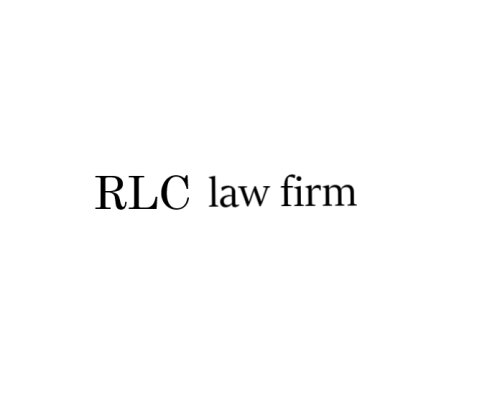Best Guardianship Lawyers in Canada
Share your needs with us, get contacted by law firms.
Free. Takes 2 min.
Or refine your search by selecting a city:
List of the best lawyers in Canada
About Guardianship Law in Canada
Guardianship in Canada refers to the legal authority granted to an individual, allowing them to make decisions on behalf of a person who is unable to do so themselves, typically due to age, disability, or incapacity. This legal relationship is designed to protect individuals who are unable to care for themselves, ensuring that they have the necessary support to manage their personal, legal, and financial affairs. Guardianship laws can vary widely across provinces and territories, with specific regulations governing the appointment, responsibilities, and oversight of guardians.
Why You May Need a Lawyer
There are several situations in which individuals may require legal assistance with guardianship matters:
- Establishing Guardianship: Navigating the legal process to become a guardian can be complex, requiring a clear demonstration of necessity and competency.
- Contesting Guardianship: If there is a dispute over who should be appointed guardian or if the existing guardianship arrangement is being contested, legal guidance is crucial.
- Modifying or Terminating Guardianship: Changes in circumstances may require modifications to guardianship arrangements, which can involve additional legal proceedings.
- Compliance with Legal Obligations: Guardians must adhere to legal obligations and may need legal advice to understand these responsibilities fully.
- Dealing with Allegations of Impropriety: Guardians facing allegations of mismanagement or abuse of power may need legal representation to address such claims.
Local Laws Overview
Guardianship laws in Canada are primarily governed at the provincial and territorial level, meaning there are significant differences across the country:
- Eligibility Requirements: Each jurisdiction specifies who can apply to become a guardian and the criteria they must meet.
- Types of Guardianship: There may be distinctions between guardians of the person and guardians of property, each with distinct roles and responsibilities.
- Court Processes: The process for applying for guardianship usually involves a court procedure where evidence must be provided to support the need for guardianship.
- Oversight and Reporting: Guardians are generally required to report to the courts or a designated governmental body regarding their management of the ward's affairs.
- Rights of the Ward: Guardianship laws stress the importance of maintaining the ward's rights and independence to the greatest extent possible.
Frequently Asked Questions
What is the difference between a guardian and a power of attorney?
A guardian is appointed by a court to make decisions for a person who cannot make them on their own. A power of attorney is a legal document that allows one person to act on another's behalf, typically involving financial matters, and is usually set up by the individual before they become incapacitated.
Can guardianship be challenged or revoked?
Yes, guardianship can be challenged or revoked if circumstances change, if the guardian is not fulfilling their duties responsibly, or if the individual under guardianship regains the ability to manage their affairs.
How is a guardian chosen?
A guardian is typically chosen based on their relationship to the ward and their ability to manage the ward's affairs effectively. Courts often give preference to family members unless there are compelling reasons to select another person.
Do all provinces have the same laws regarding guardianship?
No, each province and territory in Canada has its own specific laws and procedures regarding guardianship. It is important to understand the local laws that pertain to your situation.
What responsibilities does a guardian have?
A guardian is responsible for making decisions on behalf of the ward, which can include financial management, healthcare decisions, and ensuring their overall well-being. The specific duties can vary depending on the scope of guardianship granted by the court.
Can guardianship be temporary?
Yes, temporary or limited guardianship can be granted in situations where the incapacity is expected to be short-term or when the need for guardianship is anticipated to change.
What if there is a disagreement about guardianship within the family?
Disagreements about guardianship can be resolved through legal mediation or by the court, which will make a decision based on the best interests of the individual requiring guardianship.
Is it possible to appoint multiple guardians?
Yes, in some cases, co-guardians may be appointed to share responsibilities, although this can depend on the jurisdiction and the specific needs of the ward.
How can I ensure that a guardian is acting in the best interests of the ward?
Regular monitoring, reporting requirements to the court, and the ability to raise concerns about the guardian’s conduct are mechanisms in place to ensure guardians act in the ward’s best interests.
What is the process of applying for guardianship?
The process generally involves filing an application with the appropriate court, providing evidence or testimony to demonstrate the need for guardianship, and possibly attending a hearing. Legal guidance is often recommended.
Additional Resources
For those seeking more information or assistance, consider reaching out to the following resources:
- Provincial or Territorial Government Websites: Check the official websites for specific guidelines and forms related to guardianship.
- Public Guardianship Offices: Each province and territory may have a public guardian or trustee office that provides information and assistance.
- Legal Aid Services: If you need legal representation but cannot afford it, legal aid services may be able to provide help.
- Community Legal Clinics: These clinics can offer free or low-cost legal advice on a variety of issues, including guardianship.
- Non-profit Organizations: Organizations like Alzheimer’s societies or associations for people with disabilities often provide resources and support related to guardianship.
Next Steps
If you believe you need legal assistance with a guardianship matter, consider the following steps:
- Consult with a Lawyer: Seek advice from a lawyer who specializes in family law or elder law for personalized guidance.
- Gather Documentation: Collect all relevant documents, including medical reports and financial statements, to support your case.
- Educate Yourself: Familiarize yourself with the specific guardianship laws in your jurisdiction.
- Reach Out to Support Networks: Use available resources and organizations to better understand the process and get support.
- Prepare for Legal Proceedings: If court action is required, ensure you have legal representation and understand what will be expected throughout the process.
Lawzana helps you find the best lawyers and law firms in Canada through a curated and pre-screened list of qualified legal professionals. Our platform offers rankings and detailed profiles of attorneys and law firms, allowing you to compare based on practice areas, including Guardianship, experience, and client feedback.
Each profile includes a description of the firm's areas of practice, client reviews, team members and partners, year of establishment, spoken languages, office locations, contact information, social media presence, and any published articles or resources. Most firms on our platform speak English and are experienced in both local and international legal matters.
Get a quote from top-rated law firms in Canada — quickly, securely, and without unnecessary hassle.
Disclaimer:
The information provided on this page is for general informational purposes only and does not constitute legal advice. While we strive to ensure the accuracy and relevance of the content, legal information may change over time, and interpretations of the law can vary. You should always consult with a qualified legal professional for advice specific to your situation.
We disclaim all liability for actions taken or not taken based on the content of this page. If you believe any information is incorrect or outdated, please contact us, and we will review and update it where appropriate.
Browse guardianship law firms by city in Canada
Refine your search by selecting a city.
















